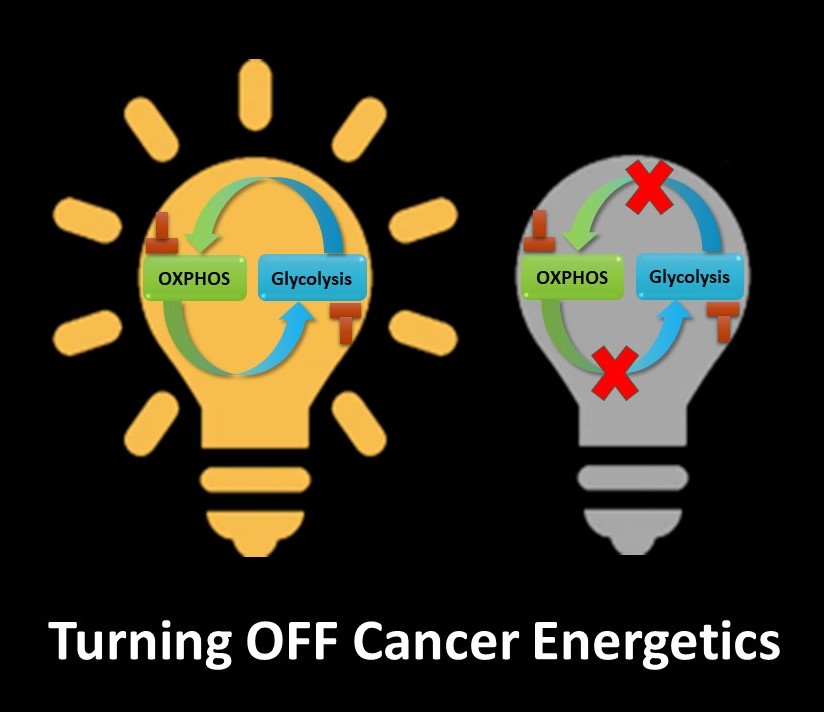Mohamed Elgendy Group
Metabolic alterations in cancer

“Energy and persistence conquer all things”
Benjamin Franklin
This quote is particularly true in the case of cancer. Cancer cells require dramatically high levels of energy and biomass to fuel their rapid growth. How tumors alter their metabolism to meet these high demands has always fascinated scientists. Cytosolic glycolysis and mitochondrial oxidative phosphorylation “OXPHOS” are the main energy-producing pathways. For decades, metabolic reprogramming of tumors was perceived as only increased glycolysis as postulated by Otto Warburg almost a century ago. This simplistic view has recently been challenged and revised as we started to realize that tumor metabolism is more heterogeneous than initially assumed.
Vision
We are fascinated by how tumors adapt their metabolism to flourish in a metabolically-harsh environment. We have just existed the era when tumor metabolism meant only Warburg Effect and we believe there is a room for ground-breaking discoveries in this field yet to be made. We aim to deeply understand metabolic reprogramming in tumors and to exploit this understanding to tailor novel therapeutic strategies.
Mission
Our group investigates different aspects of tumor metabolism. Particularly, we are interested to study how some tumors flexibly adapt their metabolism to overcome metabolic challenges during the course of tumorigenesis or in response to drugs targeting metabolic pathways. We aim to dissect molecular mechanisms of such metabolic plasticity. We also aim to unravel the contribution of metabolic adaptations to cancer cell’s metastatic potential and anti-cancer drug resistance, two most devastating processes in cancer management.

Future Projects and Goals
- How do the metabolic features of metastatic cells (seed) and microenvironment (soil) at different organs/sites contribute to organotropism? What is the contribution of “metabolic compatibility” between the seed and soil?
- Can such compatibility be disrupted by pharmacological or dietary approaches or altered by pathology?
- Why most anti-cancer therapeutics are active against certain tumors from specific tissues of origin? Does the metabolic signature of tumors determine the response/resistance to anti-cancer therapy?
Methodological and Technical Expertise
- General molecular and cellular biology techniques (e.g. Cell Culture, imaging, immunoblotting, qPCR, ..etc)
- Genome editing
- Metabolic analysis in vitro and in vivo
- Metabolomic and proteomic profiling
- Mouse tumor models